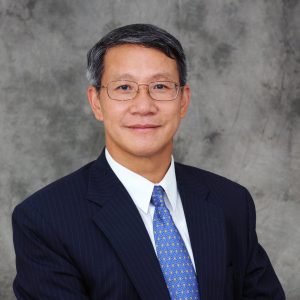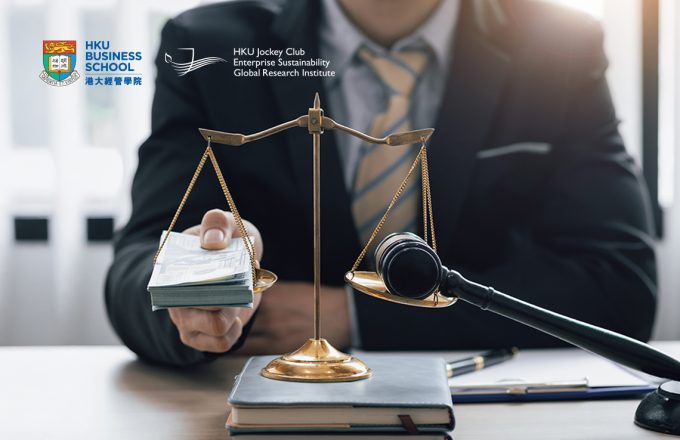How Breakthrough Innovation creates start-up success in competitive markets

For several years now, governments and institutions in Hong Kong and mainland China have been wholeheartedly supporting innovation-based start-up companies. The 2019 edition of the Global Innovation Index – an annual ranking of countries by their capacity for innovation – ranks Hong Kong at number 13 and the mainland one notch below [1]. Meanwhile, innovative start-ups are blossoming in both economies. In 2017, Hong Kong alone saw 2,200 start-ups created, 16% more than the previous year [2].
The majority of fledgling businesses fly straight into the unforgiving rule of natural selection – only the fittest and strongest survive. In terms of start-ups, the rule is even more merciless. Just look at the numbers: 97% of seed or crowdfunded consumer hardware start-ups eventually fail. Why? Reasons identified in nearly 300 start-up failures include “no market need”, “outcompeted”, and “[this is a] product without a clear and sustainable business model” [3&4]. Despite painful lessons being learned, these figures still persist.
Professor David K.C. Tse is Stelux Professor of Marketing, Chair Professor of International Marketing, and the Director of the Contemporary Marketing Centre at the HKU Business School. He is one of the school’s foremost professors, teaching the next generations of entrepreneurs and business leaders. He has twice won MBA teaching awards and is a world-class scholar in international marketing, China marketing and services marketing. Professor Tse’s 65 papers and books on consumer satisfaction, cross-cultural consumer research, cross-cultural marketing research, and market entry strategy are among the most cited in their respected fields, having been cited more than 16,500 times on Google Scholar. He has been a top 1% cited scholar in The University of Hong Kong since 2009. His recent book, co-authored with Professor Kineta Hung, “Dynamic Growth of Chinese Firms in the Global Market,” [6] is published by Cambridge University Press. A detailed list of Professor Tse’s publications can be found here) Outside of academia, Professor Tse has been a non-executive director in several companies and has actively consulted with firms in mainland China and Hong Kong.
Professor David Tse, Stelux Professor of Marketing and Director of the Contemporary Marketing Centre at the HKU Business School, believes Breakthrough Innovation (BI) is an effective strategy for success. Simply put, BI fosters strategies that help service new and under-served markets. While most research debates the relative merits of radical – or technology-driven – innovation, versus incremental – or market-driven – innovation, Professor Tse’s studies show that companies should combine technological and marketing competencies to meet niche market demands; i.e. develop new products for new markets [5]. His investigations have also determined that BI is highly relevant to start-ups in established markets.
These findings have been embraced by start-ups that have subsequently received strategic advice from Professor Tse and gone on to improve their fortunes. Let’s look at two examples: Time Medical and Xinsight.
Time Medical – MRIs for under-served users
Time Medical is a magnetic resonance imaging (MRI) equipment company. Historically, the MRI equipment industry has been dominated by three firms – General Electric, Siemens and Philips – which collectively hold 80% of the global market.
Time Medical initially adopted a low-cost strategy to sell universal MRI machines at lower prices, a strategy which rapidly drained its financial capital. Looking to find a way through the intense price competition and bring the company back from the financial brink, they invited Professor Tse to give advice and participate in discussions with board members and senior managers.
Professor Tse’s engagement spurred Time Medical to radically change their strategy: they adopted BI and targeted two niche markets, developing the world’s first paediatric MRI in 2016, which won an international award in Geneva in 2016 and was rated a “favoured system” at the Shanghai Import Expo in 2018.
Time Medical did not stop there. Professor Tse then solicited user insights from top radiologists and patients, contributing to the company’s development of a patient-oriented breast MRI in 2017. Its design uses a technology tailored for Asian women, who tend to have denser breasts, allowing customers to offer lower-cost mammograms along with clearer and more reliable images. In 2019, the company took Professor Tse’s advice and added a machine-learning feature and AI systems for scanning and report drafting to the machine. Their innovative breast MRI equipment gained extensive mass media coverage and high praise at global and regional breast MRI conferences and trade fairs.
The successful application of BI to their business model has significantly raised their corporate fortunes: Time Medical is planning for an IPO in Hong Kong in 2021, with a corporate value of US$1.5 billion.
Xinsight – Meeting niche market needs through innovative big data applications
Xinsight, an internet big data service provider, was founded in Beijing in 2014. Soon after, its senior management began consulting Professor Tse regarding potential new products and the company’s marketing and innovation strategy.
Despite having limited means, the start-up decided to pursue the BI path. The company put 30% of its resources into developing new products for niche markets – these included a cloud computing eye-tracking system and a product to monitor the online behaviour of consumers through cognitive, emotional and social metrics.
As many of their fellow start-ups failed, Xinsight gained success by adopting BI strategies, eventually being recognised as one of the top 50 internet big data companies in Beijing in 2018.
Backtracking to 2005, we see the roots of BI in Professor Tse’s pioneering work with Professors Kevin Zhou and Bennett Yim of the HKU Business School. In a piece called The Effects of Strategic Orientations on Technology- and Market-based Breakthrough Innovations, the authors state that “…firms should couple a market orientation with entrepreneurial values [to] enable firms to escape the myopia of their served markets … By targeting new and unserved segments, firms can introduce innovations that seize opportunities in emerging markets.” [7]
As evidenced by the fast-track success enjoyed by start-ups that pursue BI paths, we see that this far-sighted proposition has not faded with time – indeed, the theory has only become more valid.

Professor David K.C. Tse is Stelux Professor of Marketing, Chair Professor of International Marketing, and the Director of the Contemporary Marketing Centre at the HKU Business School. He is one of the school’s foremost professors, teaching the next generations of entrepreneurs and business leaders. He has twice won MBA teaching awards and is a world-class scholar in international marketing, China marketing and services marketing.
Professor Tse’s 65 papers and books on consumer satisfaction, cross-cultural consumer research, cross-cultural marketing research, and market entry strategy are among the most cited in their respected fields, having been cited more than 16,500 times on Google Scholar. He has been a top 1% cited scholar in The University of Hong Kong since 2009. His recent book, co-authored with Professor Kineta Hung, “Dynamic Growth of Chinese Firms in the Global Market,” [6] is published by Cambridge University Press. A detailed list of Professor Tse’s publications can be found here)
Outside of academia, Professor Tse has been a non-executive director in several companies and has actively consulted with firms in mainland China and Hong Kong.
[References] [1] Cornell University, INSEAD, and WIPO. (2019). The Global Innovation Index 2019: Creating Healthy Lives—The Future of Medical Innovation. Ithaca, Fontainebleau, and Geneva. https://www.globalinnovationindex.org/gii-2019-report [2] Innovation and Technology Bureau. (n.d.). Innovation Hong Kong. Innovation and Technology Bureau, HKSAR. https://www.itb.gov.hk/en/publications/InnovationHK.pdf [3] CB Insights. (2020, January 21). 339 Startup Failure Post-Mortems. CB Insights. https://www.cbinsights.com/research/startup-failure-post-mortem [4] CB Insights. (2019, November 6). The Top 20 Reasons Startups Fail. CB Insights. https://www.cbinsights.com/research/startup-failure-reasons-top [5] Zhou, K. Z., Yim, C. K., & Tse, D. K. (2005). The effects of strategic orientations on technology-and market-based breakthrough innovations. Journal of Marketing, 69(2), 42-60. https://www.jstor.org/stable/30162044 [6] Tse, D.K., & Hung, K. (2021). Dynamic Growth of Chinese Firms in the Global Market: Challenges, Strategies and Implications. Cambridge University Press.







